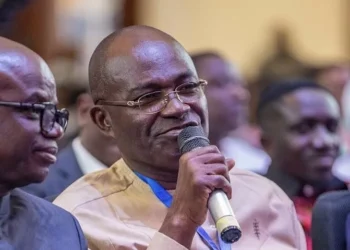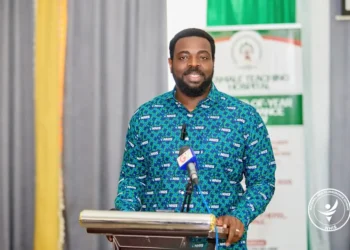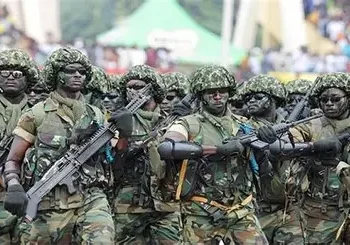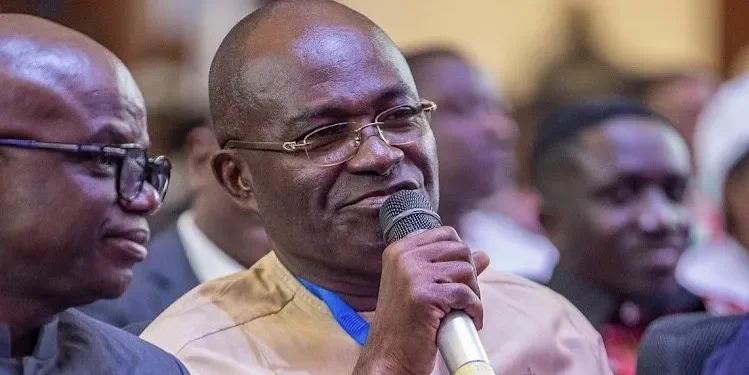The immediate past head of the United Nations Office for West Africa and the Sahel (UNOWAS), Dr. Muhammed Ibn Chambas, has indicated that Ghanaians demonstrated political maturity in the 2020 Presidential election.
Speaking at the opening of the three-day high level post-election stakeholder review workshop by CODEO, Dr. Ibn Chambas said the contribution by CODEO and its collaborative partners was instrumental to the conduct and conclusion to the 2020 general elections.
“The December 7 general election was another major test to Ghana’s democratic process. And Ghanaians despite numerous challenges in a very tensed atmosphere once again demonstrated their political maturity and love for country by ensuring a largely peaceful conclusion to the process and avoiding a post electoral crisis.”
Dr. Ibn Chambas
The UNOWAS past head then lauded the role of Civil Society Organizations (CSOs) in the democratic process in Ghana through the promotion of peaceful, transparent and credible elections. He said their contribution to conflict and resolution processes were also laudable and urged the CSOs to continue with such works.
He also admonished the various CSOs to continue to remain engaged;and carry out their mandates to advance the democratic process in the country and other sub-regions on the continent.
After action reviews important
Dr. Chambas then said it is important to have after action reviews to key processes such as elections;with the view of identifying best practices and improving on future electoral processes.
“Any human process will definitely have its shortcomings, so it is normal. It doesn’t matter how well one thinks he has performed. Monitoring and evaluation requires that;we take a look at our performance and see how we can improve;on future endeavors and future exercises.”
Dr. Ibn Chambas
He noted that the conversation is keenly important at a time when there are question marks on the state of democracy in Africa.
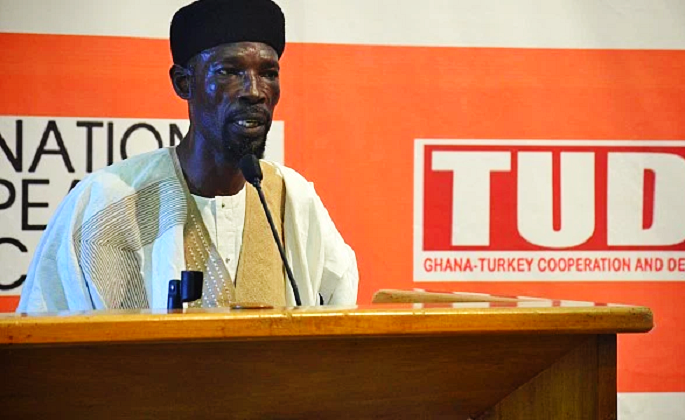
Also giving an opening address at the function, the acting Chairperson of CODEO, Sheikh Armiyawo Shiabu;said that despite the peaceful nature of the elections, an assessment must be conducted.
He further averred that, although the conduct of elections was generally successful and the supreme court verdict of the Presidential election may have brought some closure to the elections, CODEO is of the strong view that it is appropriate for a holistic assessment to be conducted.
“This is to identify what worked and did not work well,;the challenges and the opportunity to improve on the conduct of future elections in the country.”
Sheikh Shiabu
Sheikh Shaibu indicated that it is the expectation of CODEO that the outcome of the stakeholder engagement;will be used to champion advocacy around electoral reforms.
Ghana made strides towards democratic governance
Addressing the stakeholders also, Mr Emmanuel Mensah, the deputy director for democracy and governance of the USAID-Ghana;disclosed that Ghana has made considerable strides towards establishing a democratic governance.
This, he indicated, was done by preserving the rule of law, safe guarding it with the free press;and promoting delivery of essential service to all its citizens irrespective of status beliefs and circumstances.
“For Ghana to stay on this trajectory, fair and credible elections are a necessity. This requires that all stakeholders are fully invested in learning and adapting to prove future elections.”
Emmanuel Mensah
According to him the review should motivate stakeholders to evaluate what took place prior to, during and after the 2020 elections. He also noted that stakeholders should be able to determine how to promote and sustain Ghana’s democracy.
The high-level post-election stakeholder review workshop by CODEO is an established practice that;after every election in Ghana, CODEO brings together key stakeholders to review and assess the conduct of elections from multiple perspectives. This is done with the intention to derive valuable lessons necessary to inform and guide relevant recommendations;for the improvement of the conduct of future elections in Ghana.




